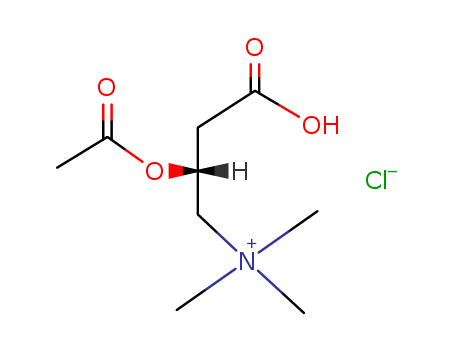- Chemical Name:Acetyl-L-carnitine
- CAS No.:5080-50-2
- Deprecated CAS:461-77-8,541-68-4,3624-25-7,74832-89-6
- Molecular Formula:C9H17NO4.HCl
- Molecular Weight:239.699
- Hs Code.:29239000
- European Community (EC) Number:608-476-7,610-570-8,690-015-4
- UNII:6DH1W9VH8Q
- DSSTox Substance ID:DTXSID1040956
- Wikipedia:Acetylcarnitine
- Wikidata:Q311992
- NCI Thesaurus Code:C87329
- Metabolomics Workbench ID:49952
- ChEMBL ID:CHEMBL1697733
- Mol file:5080-50-2.mol
Synonyms:Acetyl Carnitine;Acetyl L Carnitine;Acetyl-L-Carnitine;Acetylcarnitine;Acetylcarnitine, (R)-Isomer;Alcar;Branigen;Carnitine, Acetyl;Levocarnitine Acetyl;Medosan



 Xi
Xi


